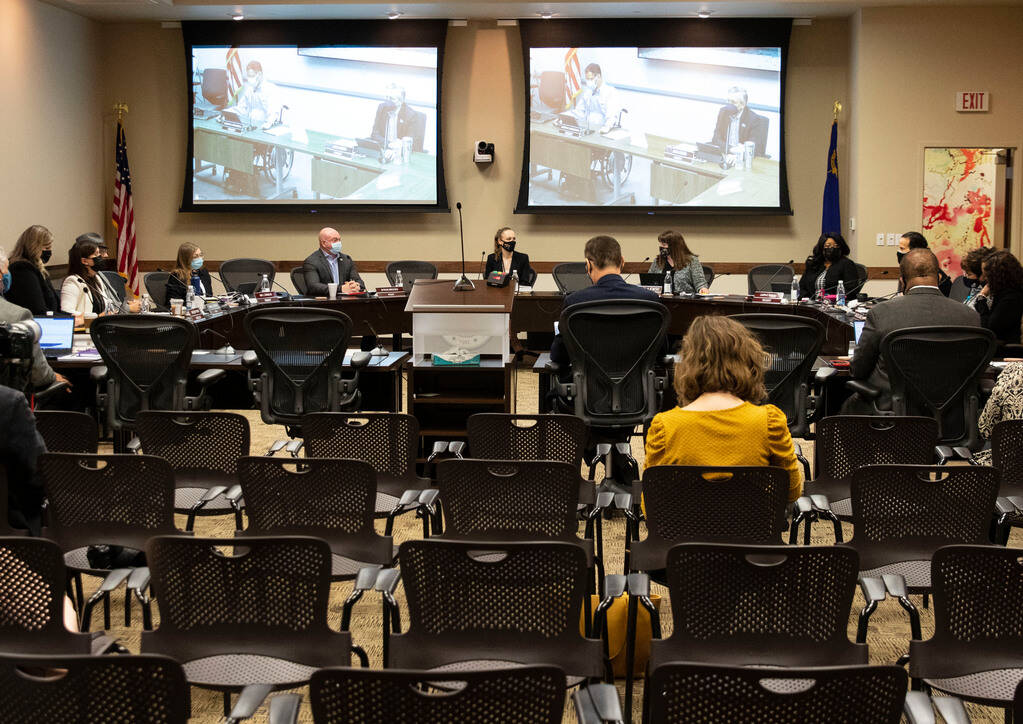Anti-bias training required for Nevada higher education employees
Employees at the state’s public colleges and universities — plus higher education system offices and the Board of Regents — will be required to complete anti-bias and anti-discrimination training.
The Nevada System of Higher Education’s Inclusion, Diversity, Equity and Access Committee voted Friday on policy revisions to mandate training. That comes after regents adopted an anti-discrimination resolution in September and requested a training requirement.
Training must take place at least every two years and can be included as part of existing training efforts.
The policy change won’t become effective until Dec. 31, 2023, in order to allow time to develop and implement training modules, NSHE Chief General Counsel Jimmy Martines told regents.
Regent Byron Brooks — who isn’t a committee member but attended the meeting — said he couldn’t be more thankful the training requirement was being considered.
He said he was vocal when the anti-discrimination resolution passed, saying it “didn’t have any meat on the bone,” but noted the policy change has plenty.
Regent Patrick Carter, who’s also not a committee member, said there’s a punitive element for employees if they don’t do the training. But “can you really force a board member to do anything?” he asked.
Since regents are elected officials, NSHE doesn’t have the power to punitively end a regent’s term, Martines said, noting there’s a much different level of authority over employees than regents.
But he said he hopes regents will have the “individual interest” to go through the training.
Chancellor Dale Erquiaga said he wanted to commend regents who’ve pushed the higher education system to act more quickly on a training requirement.
It’s not only the right thing to do, he said, but probably overdue.
Under the policy revision, each college and university — as well as system offices — will create “education and training programs that address the effects of bias and discrimination, including racism, antisemitism, age, disability, gender, military status or obligations, sexual orientation, gender identity or expression, national origin, race, color, and religion.”
Training will be left up to each institution, said Regent Laura Perkins, who’s the committee chair.
Each school and system unit must issue a written report each year on the “status and outcomes” of the training programs, the policy says.
The committee debated whether to add Islamophobia to the policy — or whether to remove the reference specifically to antisemitism and instead reference all religions more broadly — but opted to approve policy language as originally drafted.
During a March meeting of the full Board of Regents, members “expressed concern that antisemitism be specifically addressed,” according to meeting materials posted online.
On Friday, NSHE’s strategic planning committee also met. And the full Board of Regents was originally scheduled to hold a special meeting to consider a notice of contract termination for Chief of Staff and Special Counsel Robert Kilroy, but it was canceled after the system announced Thursday that Kilroy resigned.
Contact Julie Wootton-Greener at jgreener@reviewjournal.com or 702-387-2921. Follow @julieswootton on Twitter.

















